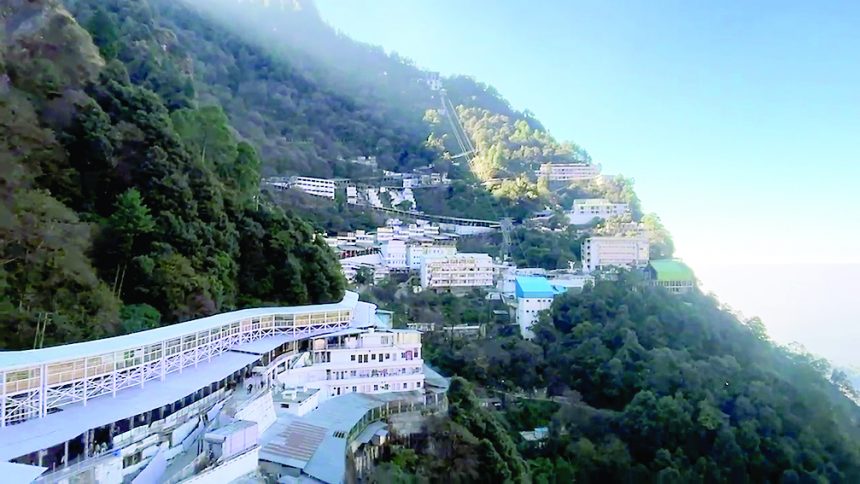Srinagar, Nov 28: A day after the detention of four individuals at the Vaishno Devi shrine in Katra, which escalated tensions, trade unions, labour leaders, and other stakeholders have announced a crucial meeting on December 1 to decide their future strategy regarding the proposed ropeway project.
Senior leader and President of the Palki Association, Sohand Chand, confirmed to Rising Kashmir that the meeting will include all Katra stakeholders. “The future of Katra will be decided during this meeting, and we will not compromise on our demands. We will collectively oppose this project,” Chand asserted.
Chand further explained that a committee will be formed to represent all stakeholders’ aspirations. “This committee will present our mandate to the Shrine Board and the Jammu and Kashmir government,” he said, adding that invitations have been sent to all Katra associations. The committee will be finalized after the meeting, and a strategy will be devised.
“Except for the Shrine Board and the government, no one supports this project. It threatens the livelihoods of hundreds of labourers, workers, and hoteliers in the region. If implemented, Katra will become a mere picnic spot, like Gulmarg. We will not let the government proceed with this plan,” he stressed.
Chand also highlighted the cultural and religious significance of the existing pilgrimage route, stating that the ropeway project jeopardizes the local economy and undermines Hindu faith. “Certain rituals and religious duties hold spiritual importance and should not be viewed through a materialistic lens,” he added. “If the ropeway becomes functional up to the Bhavan, the spiritual essence of the pilgrimage will be diminished.”
Protests erupted last week in Katra against the proposed ropeway from Katra to Shri Mata Vaishno Devi Bhavan, with many fearing the project would severely impact the local economy.
Rakesh Wazir, President of the Katra Hoteliers Association, shared that the tensions in Katra over the past week resulted in a 15-20 per cent decline in business. “Now, things have come back on track, and we are witnessing a good footfall in tourists and Yatris, which is a positive move. It affected the business, but things are now improving,” Wazir said.
Social activist Sonu Thakur voiced strong opposition to the ropeway project, warning that it would strip thousands of laborers, shopkeepers, and others in Katra of their livelihoods. “For centuries, Katra has been a hub where people of all religions work together. Residents from 10 districts of J&K depend on this town for their livelihood. This is not just about economic survival; it is also about faith,” Thakur stated, urging the government to address public concerns.
Meanwhile, Anshul Garg, CEO of the Shri Mata Vaishno Devi Shrine Board, did not respond to repeated calls for comment. However, Harjinder Singh, Media Incharge at the Shrine Board, clarified that CEO is handling the matter and is the only authorized spokesperson for queries.
After last week’s protests, shopkeepers, pony operators, and palanquin workers resumed their operations on Thursday, opposing the proposed ropeway project. Shops along the pilgrimage route were reopened, and pilgrims were seen trekking to the shrine, restoring normalcy to the area.
Earlier this week, Lt. Governor Manoj Sinha assured that the genuine concerns of those protesting against the ropeway project would be addressed. Sinha, who chairs the Shri Mata Vaishno Devi Shrine Board (SMVDSB), stated that a committee led by the Divisional Commissioner of Jammu has engaged with stakeholders to build consensus on development initiatives. Sinha emphasized that concerns about potential job losses are being carefully considered. “Development projects will proceed without compromise, but ample employment opportunities will be provided to the public,” he assured.








